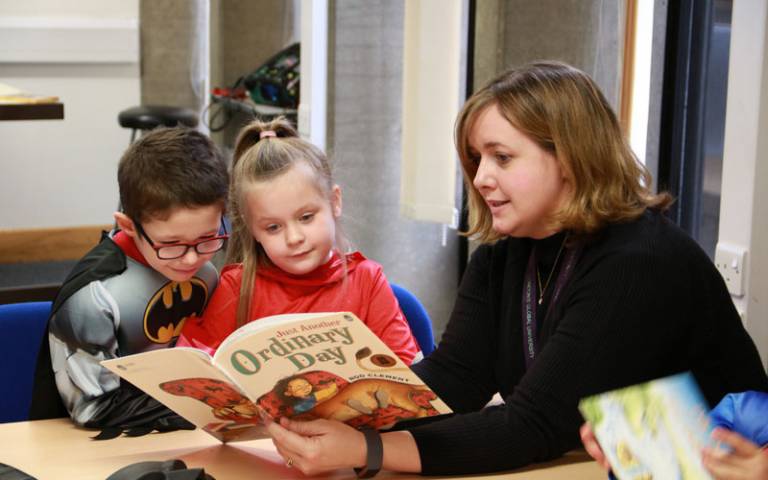IOE reading research features in journal special issue
22 January 2021
Numerous UCL Institute of Education (IOE) academics, both past and present, have contributed articles to a special edition of journal Education 3-13, exploring reading from multiple perspectives.

Guest-edited by IOE Emeritus Professor Roger Beard, the issue considers what needs to be done to help more children benefit from the rewards of reading and celebrates what has been achieved through bridging research, scholarship and practice.
Professor Gemma Moss, Director of the IOE’s International Literacy Centre, looks at reading as a social and cultural activity and how it is impacted by different times and places. Her article examines the inequalities of access to literacy and how teachers can navigate conflicts between parts of the literacy curriculum and the teaching techniques used to address these inequalities.
Dr Sinéad Harmey analyses evidence on reading difficulties through cognitive, social and cultural and interactive perspectives. Dr Harmey reviews these perspectives and how they help us understand supporting children with reading difficulties. There is also an examination of the choice of texts used to support reading development.
UCL Knowledge Lab academics Professor Jeff Bezemer and Dr Kate Cowan also contribute to this special edition with a paper on social semiotics, the study of how humans communicate in particular social and cultural settings. Their work reviews how social semiotics has contributed to the study of reading and develops an agenda for further research in light of technological change.
In concluding his article, Professor Beard notes: “The field of reading is a compelling and absorbing one, amenable to investigations through a range of theories and research studies and characterised by many lively debates and discussions. Despite substantial efforts by teachers and researchers, there remain many unresolved issues, including some that are only now beginning to be recognised and addressed.
“It is hoped that this Special Issue will offer some indications of what still needs to be done to bring more positive rewards from reading to greater numbers of children and young people, as well as celebrating what has already been achieved through bridging research, scholarship and practice.”
Links
- Read ‘Education 3-13 – Special Issue on Reading: Multiple Perspectives’
- View Professor Roger Beard’s research profile
- View Professor Gemma Moss’s research profile
- View Dr Sinéad Harmey’s research profile
- View Professor Jeff Bezemer’s research profile
- View Dr Kate Cowan’s research profile
 Close
Close

